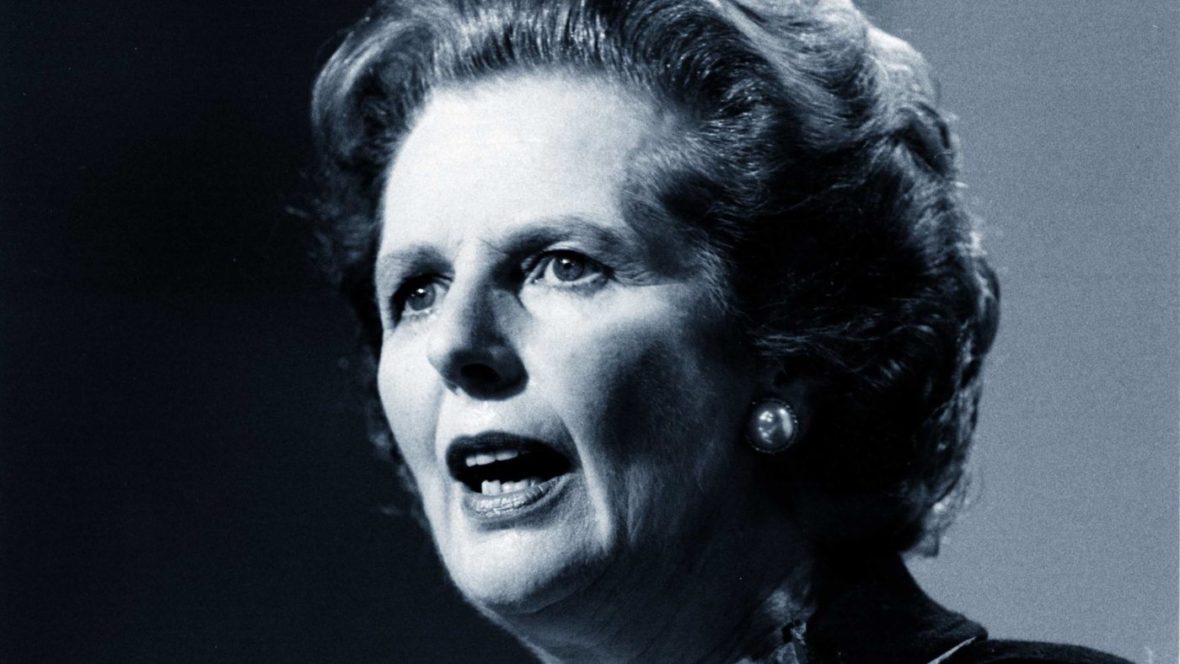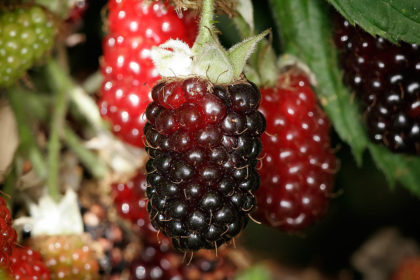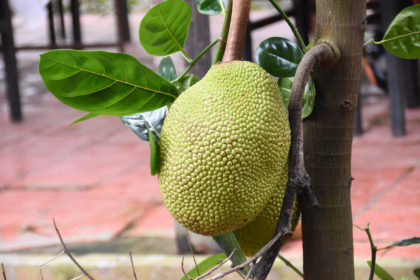Margaret Hilda Thatcher was a British stateswoman who served as Prime Minister of the United Kingdom from 1979 to 1990 and was the Leader of the Conservative Party from 1975 to 1990. She was the longest serving British Prime Minister of the 20th century and the first woman. Take a look below for 30 more fun and interesting facts about Margaret Thatcher.
1. A Soviet journalist dubbed her the “Iron Lady,” a nickname that became associated with her uncompromising politics and leadership style.
2. As Prime Minister, she implemented policies that have come to be known as Thatcherism.
3. A research chemist at Somerville College, Oxford, before becoming a barrister, Thatcher was elected Member of Parliament for Finchley in 1959.
4. Edward Heath appointed her Secretary of State for Education and Science in his Conservative government.
5. In 1975, Thatcher defeated Heath in the Conservative Party leadership election to become Leader of the Opposition, the first woman to lead a major political party in the United Kingdom.

6. She became Prime Minister after winning the 1979 general election.
7. Thatcher introduced a series of economic policies intended to reverse high unemployment and Britain’s struggles in the wake of the Winter of Discontent and an ongoing recession.
8. Her political philosophy and economic policies emphasized deregulation, particularly of the financial sector, flexible labor markets, the privatization of state-owned companies, and reducing the power and influence of trade unions.
9. Thatcher’s popularity in her first years in office waned amid a recession and increasing unemployment, until victory in the 1982 Falklands War and the recovering economy brought a resurgence of support, resulting in her decisive re-election in 1983.
10. She survived an assassination attempt in the Brighton hotel bombing in 1984.
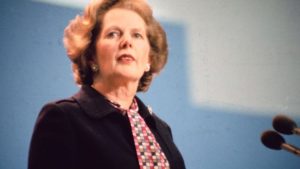
11. Thatcher was re-elected for a third term in 1987, but her subsequent support for the Community Charge was widely unpopular, and her views on the European Community were not shared by others in her Cabinet.
12. She resigned as Prime Minister and party leader in November 1990, after Michael Heseltine launched a challenge to her leadership.
13. After retiring from the Commons in 1992, she was given a life peerage as Baroness Thatcher, which entitled her to sit in the House of Lords.
14. In 2013, she died of a stroke in London at the age of 87.
15. Even though she was a controversial figure, Thatcher has been lauded as one of the greatest, most influential and widest-known politicians in British history.
16. She was able to function on very little sleep. On weekdays, she only slept for 4 hours per night.
17. Thatcher’s favorite color was turquoise.
18. She was a very close friend of U.S. President Ronald Reagan. Her political views were also very close to Reagan’s.
19. Thatcher enjoyed watching tennis and she liked listening to Bach, Chopin and Beethoven.
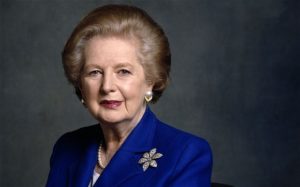
20. She remains the longest-serving Prime Minister officially referred to as such, as the post was only officially given recognition in the order of precedence in 1905.
21. Having led her party to general election victories three times in a row, she ranks as the most popular party leader in British history in terms of votes cast for the winning party, with over 40 million ballots cast for the Conservatives in total between 1979 and 1987.
22. Thatcher was voted the fourth greatest British Prime Minster of the 20th century in a poll of 139 academics organized by MORI, and in 2002, she ranked the highest among living persons in the BBC poll of the 100 Greatest Britons.
23. In 1999, Time Magazine deemed Thatcher one of the 100 Most Important People of the 20th Century.
24. In 2015, Thatcher topped a poll by Scottish Widows, a major financial services company, as the most influential woman of the past 200 years, and in 2016, topped BBC Radio 4’s Woman’s Hour Power List of women judged to have had the biggest impact on female lives over the past 70 years.
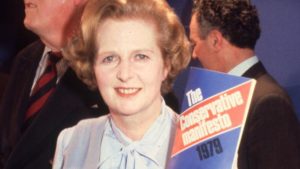
25. Thatcher became a Privy Councillor upon becoming Secretary of State for Education and Science in 1970.
26. She was the first woman entitled to full membership rights as an honorary member of the Carlton Club on becoming Leader of the Conservative Party in 1975.
27. Within two weeks of her resignation, Thatcher was appointed a Member of the Order of Merit by Queen Elizabeth II in December 1990.
28. She was appointed a Dame of the Order of St. John in July 1991.
29. In the Falklands, Margaret Thatcher Day has been marked each January 10th since 1992, commemorating her first visit to the islands in January 1983, six months after the end of the Falklands War in June 1982.
30. On March 7, 1991, Thatcher was awarded the Presidential Medal of Freedom on behalf of President George H.W. Bush.

